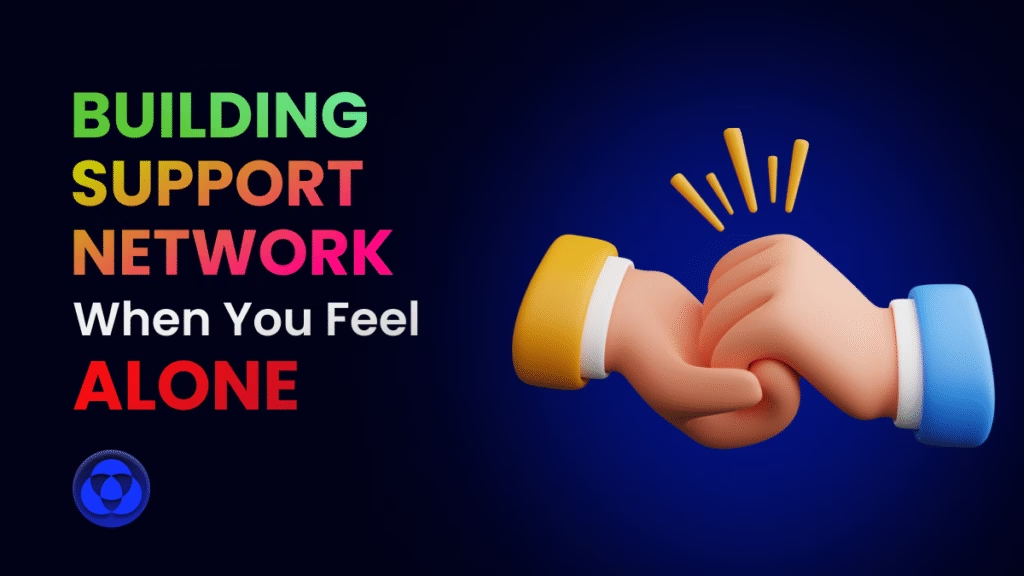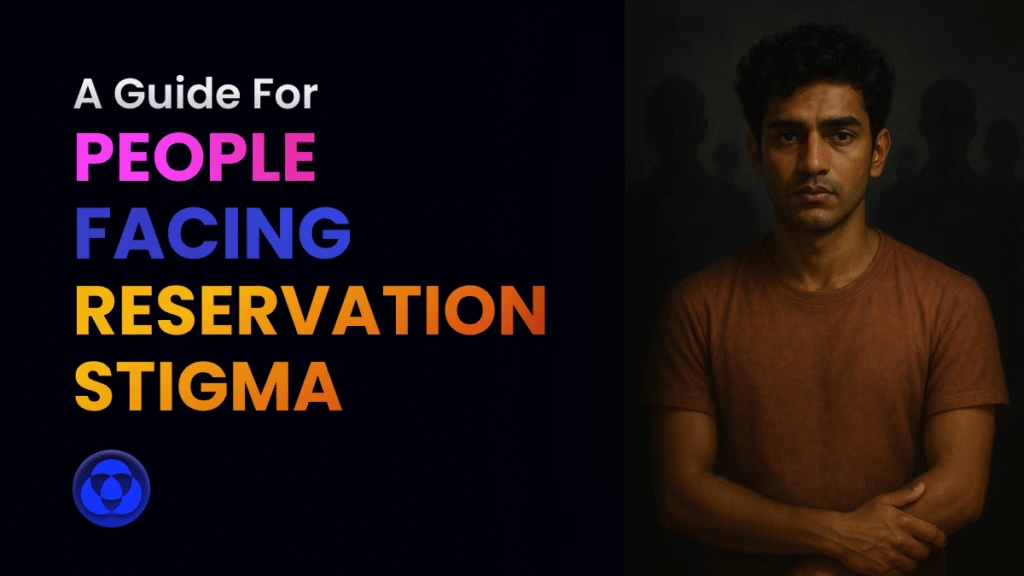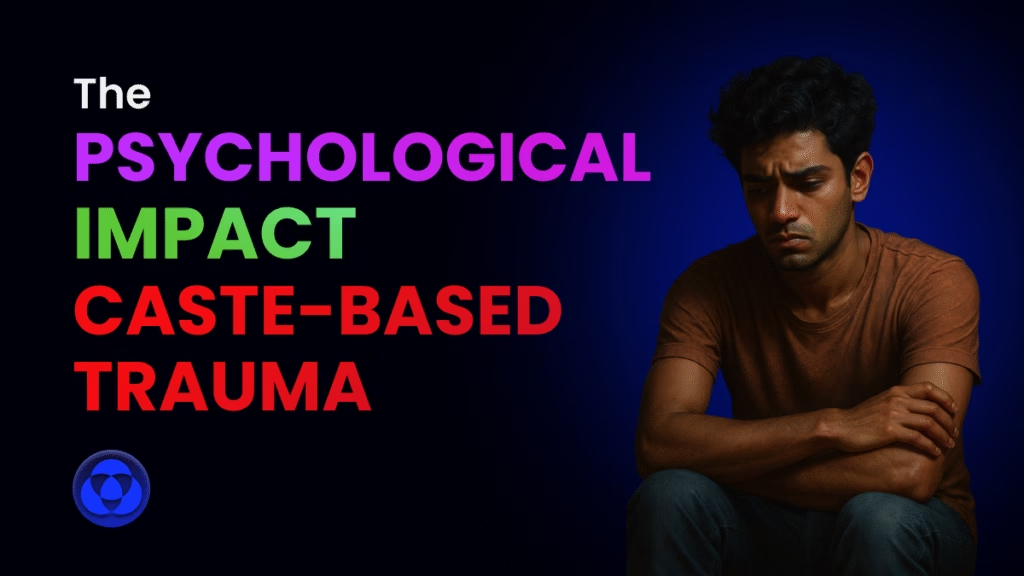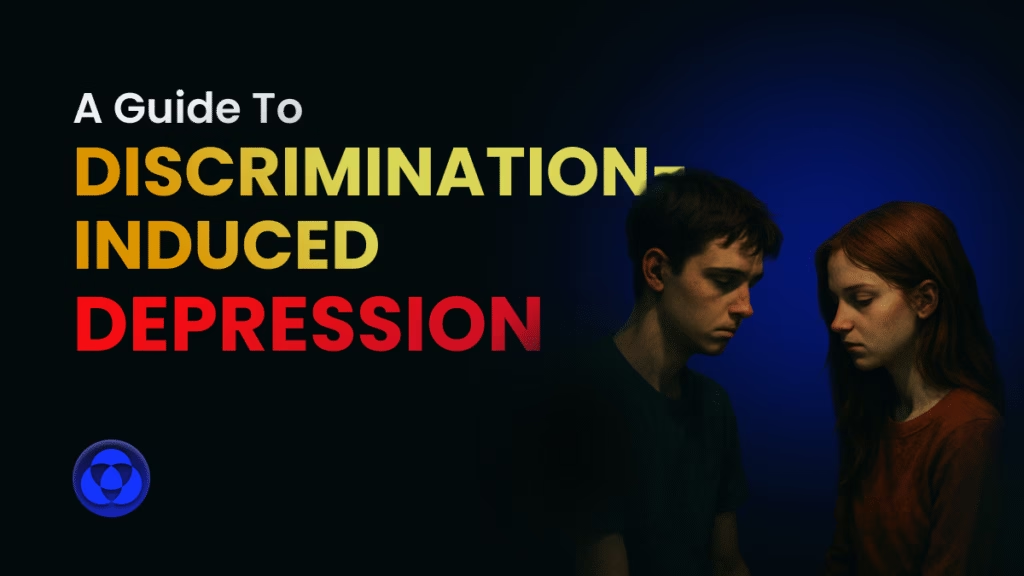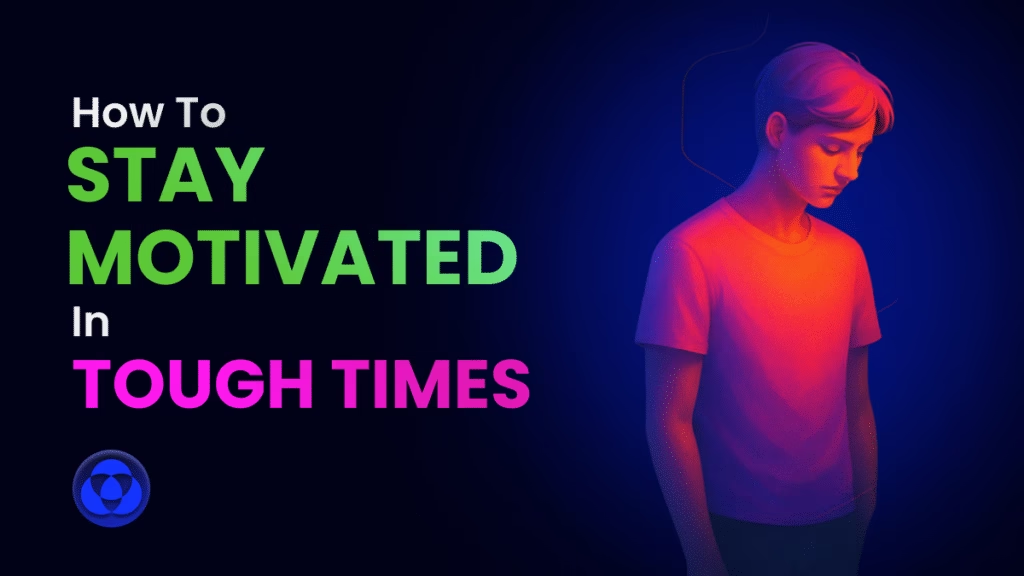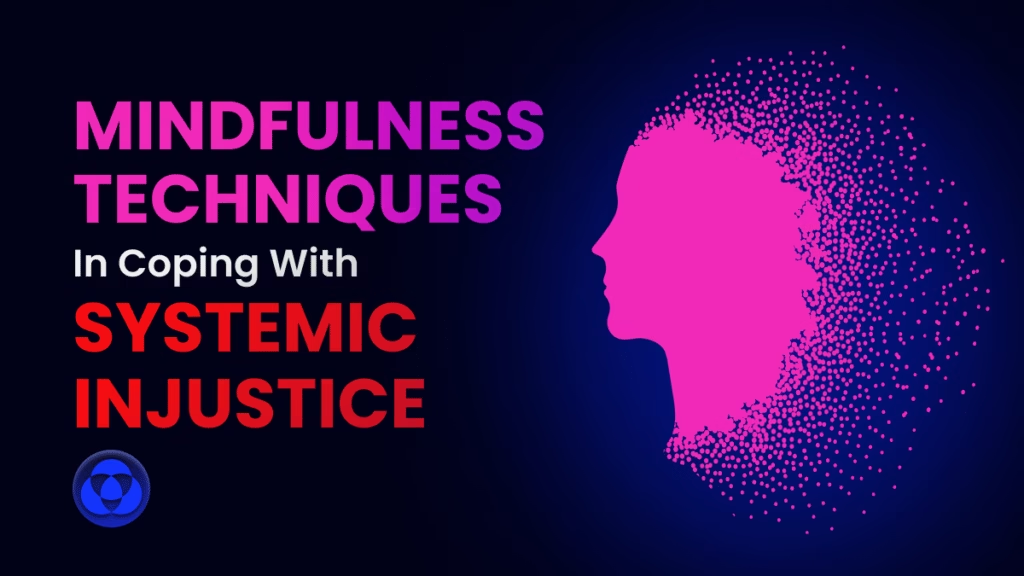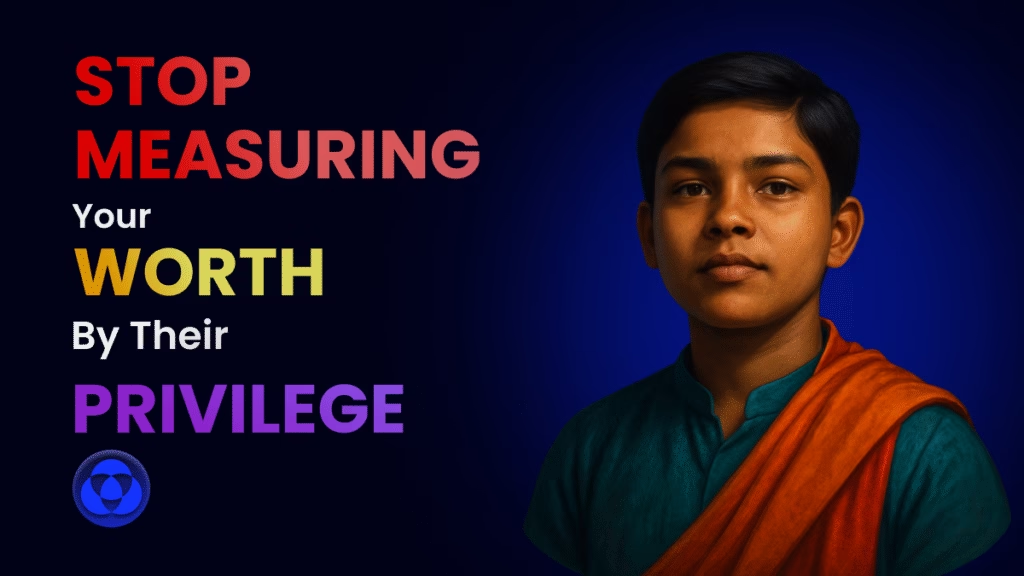Have you ever felt like you’re facing everything alone? That invisible weight on your shoulders that no one else seems to notice or understand? This feeling isn’t just about being physically isolated, it’s about feeling unseen, unheard, or unsupported even when surrounded by others. For many people from marginalized communities, including Bahujans, this sense of loneliness can be particularly intense due to systemic barriers, social exclusion, and the constant pressure to prove oneself in spaces that weren’t designed with them in mind.
Loneliness isn’t just uncomfortable. It can deeply affect our mental and physical health. Research has linked loneliness to increased stress levels, depression, anxiety, compromised immune function, and even a higher risk of mortality. It’s a silent epidemic that can affect anyone, regardless of age, gender, or social status.
The good news is that connection is possible, and building a support network, even when it feels impossible—can transform your life. This article will explore why feelings of isolation are common among marginalized groups, how historical and social barriers contribute to loneliness, and practical ways to create meaningful connections that sustain us through difficult times.
Understanding Loneliness in Marginalized Communities
The Roots of Isolation
For many Bahujans and other marginalized communities, loneliness isn’t simply a personal experience, it’s often rooted in historical discrimination, social hierarchies, and economic struggles that have forced many to navigate life without strong safety nets. Caste-based discrimination, for example, entails social and economic exclusion, segregation in housing, denial of access to public services, and enforcement of certain types of jobs on Bahujans. These systemic barriers create conditions where meaningful connection becomes difficult.
Loneliness among marginalized groups can take different forms:
- Social loneliness: The absence of a wider social network where you feel you belong
- Emotional loneliness: Lacking deep, intimate connections with others who truly understand your experiences
- Existential loneliness: Feeling fundamentally different or separate from others due to your identity or experiences
For many people from marginalized backgrounds, these forms of loneliness can overlap and reinforce each other.
The Psychological Impact
The psychological toll of being marginalized can be significant. Studies have found that loneliness has been linked to depression, anxiety, interpersonal hostility, drug and alcohol abuse, increased vulnerability to health problems, and even suicide. For those who are already navigating discrimination, these mental health challenges can be compounded.
Intergenerational Patterns
Many Bahujans and people from other marginalized communities carry the weight of intergenerational trauma—experiences of discrimination and exclusion that have been passed down through families and communities. This historical burden can make it difficult to trust others or reach out for help, perpetuating cycles of isolation.
As one researcher noted, “The hurt, distress, embarrassment, or humiliation that they have suffered when interacting with others, may completely curtail their attempts to form new relationships that could provide them the very needed support which they crave”.
Recognizing When You Need Support
Before you can build a support network, it’s important to recognize when you’re experiencing loneliness rather than simply enjoying solitude. Here are some signs that might indicate you need more connection:
- You feel emotionally drained most of the time
- Small interactions feel overwhelming or anxiety-inducing
- You find yourself constantly scrolling through social media without meaningful engagement
- You’ve stopped participating in activities you once enjoyed
- You feel invisible or misunderstood in most social settings
- You’re reluctant to share your true thoughts and feelings with others
For people from marginalized communities, these feelings might be intensified by experiences of discrimination or the pressure to code-switch in different environments.
Breaking Down Barriers to Connection
Challenging Internalized Isolation
One of the first steps in building a support network is recognizing that feeling alone is not a personal failure but often the result of larger social forces. Many people from marginalized backgrounds internalize messages that they don’t belong or aren’t worthy of connection.
Challenge thoughts like:
- “No one will understand my experiences”
- “I don’t fit in anywhere”
- “I should be able to handle everything on my own”
- “Asking for help shows weakness”
These beliefs often stem from systemic messages rather than reality. Recognizing them as barriers rather than truths is the first step toward connection.
Addressing Fear of Rejection
For many people who have experienced discrimination, the fear of rejection can be paralyzing. This is especially true for those who have been ostracized or stigmatized based on their identity.
Remember that finding the right support takes time and effort. Not every person or group will be the right fit, and that’s okay. Each interaction, even those that do not work out, provides valuable information about what you need in a support system.
Overcoming the “Burden” Mindset
Many people, especially from communities that value self-reliance or have been forced into self-reliance, worry about burdening others with their needs. This concern can prevent reaching out even when support is available.
Try reframing connection as mutual support rather than dependency. Healthy relationships involve give and take, sometimes you’ll need support, and sometimes you’ll provide it. This reciprocity is what makes communities strong.
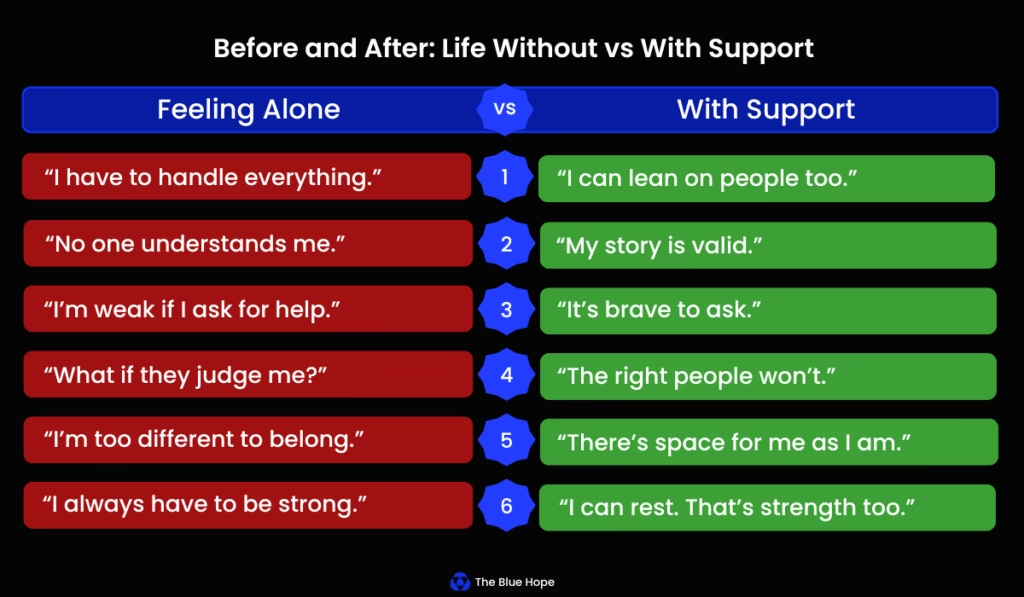
Practical Steps for Building Your Support Network
1. Start With Self-Reflection
Before reaching out to others, take some time to reflect on what kind of support you need:
- Emotional support: People who listen without judgment and validate your feelings
- Informational support: Those who can provide guidance, advice, or mentorship
- Practical support: Help with tangible needs like childcare, transportation, or resources
- Community support: A sense of belonging and shared identity or values
Understanding your specific needs will help you seek out the right kinds of connections.
2. Reconnect With Existing Relationships
Sometimes we overlook potential support that’s already in our lives. Consider:
- Family members who share your experiences or are allies
- Old friends you’ve lost touch with
- Colleagues who seem supportive
- Neighbors or community members you’ve had positive interactions with
Even if these connections aren’t perfect, they might provide a starting point for rebuilding your support system.
3. Seek Out Like-Minded Communities
Finding people who share similar values, experiences, or struggles can be powerful. Look for:
- Community organizations: Local groups focused on cultural connection or social justice
- Support groups: Both in-person and online groups for specific identities or challenges
- Educational spaces: Workshops, classes, or reading groups on topics you care about
- Spiritual or religious communities: If spirituality is important to you
- Volunteer opportunities: Working alongside others for causes you believe in
For Bahujans specifically, organizations like MettaMate and The Blue Dawn provide mental health support and connect people with affordable, queer-friendly, disabled-friendly, and anti-caste mental health services. They organize workshops and maintain a WhatsApp group where people can meet others with similar interests and help each other in times of need.
4. Leverage Technology and Social Media
Online communities can be especially valuable for people who face geographic isolation or mobility challenges. They can also provide a safer space to explore identity and connection:
- Join Facebook groups or subreddits related to your interests or identity
- Follow activists, writers, and thought leaders from your community on social media
- Participate in virtual events, webinars, or discussion forums
- Use apps designed to facilitate friendship and community
5. Create Your Own Space
If you can’t find the right community, consider creating one:
- Start a book club focused on authors from your background
- Organize informal meetups around shared interests
- Create an online group for people with similar experiences
- Host cultural celebrations or educational events
For example, initiatives like Bahujan Economists and CEDE have created spaces for researchers, scholars, students, and professionals from marginalized communities to collaborate and support each other. These groups have expanded to include hundreds of members, conducted classes and lectures, and supported students seeking opportunities in higher education and jobs.
6. Seek Professional Support
Mental health professionals can provide valuable support and help you develop skills for building connections:
- Therapists who understand cultural contexts and systemic issues
- Support groups led by trained facilitators
- Community health workers or peer support specialists
Look for professionals who practice cultural competence and understand the unique challenges faced by marginalized communities. Organizations like The Blue Dawn can help connect you with mental health professionals who are sensitive to caste-based discrimination and other forms of marginalization.
7. Build Skills for Connection
Sometimes loneliness persists because we lack the skills or confidence for building relationships. Consider:
- Communication skills: Learning to express needs and boundaries clearly
- Active listening: Developing the ability to truly hear others
- Vulnerability: Practicing appropriate self-disclosure
- Conflict resolution: Learning to navigate disagreements constructively
These skills can be developed through therapy, workshops, books, or practice with trusted individuals.
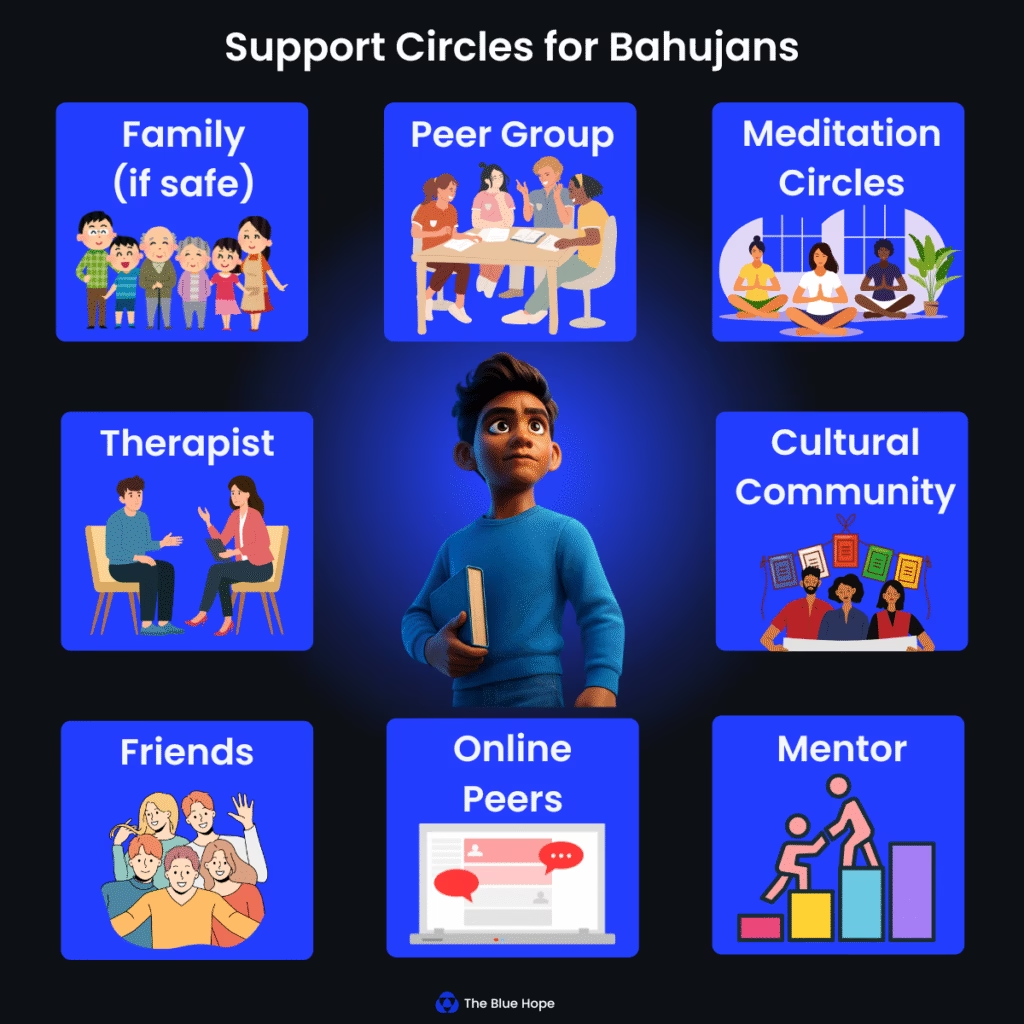
Creating Meaningful Connections
Quality Over Quantity
When building a support network, focus on the quality of connections rather than the number of people in your life. A few deep, authentic relationships often provide more support than many superficial ones.
Look for people who:
- Respect your boundaries
- Show up consistently
- Listen without immediately trying to “fix” everything
- Validate your experiences
- Reciprocate vulnerability and support
Building Trust Gradually
Trust takes time to develop, especially if you’ve experienced betrayal or discrimination in the past. Allow relationships to unfold naturally:
- Start with lower-risk interactions and gradually increase vulnerability
- Notice how people respond to small disclosures before sharing more
- Pay attention to whether people respect your boundaries
- Look for consistency between words and actions
Nurturing Reciprocity
Healthy support networks involve give and take. While you shouldn’t force yourself to give when you’re depleted, finding ways to support others can strengthen connections and give you a sense of purpose:
- Offer your skills or knowledge when relevant
- Check in on others during difficult times
- Celebrate others’ successes and milestones
- Express appreciation for the support you receive
Community-Based Support Initiatives
Peer Support Networks
Peer support, which means connecting with others who share similar experiences, can be especially powerful for marginalized communities as research on Bahujan student movements shows that peer support is essential in mobilizing Bahujan students and uniting them both on and off campus.
These peer connections provide opportunities for:
- Sharing coping strategies
- Validating experiences of discrimination
- Exchanging practical information about navigating systems
- Building solidarity and collective action
Safe Spaces and Community Centers
Physical spaces where people can gather without fear of discrimination are vital for building community. These might include:
- Cultural centers
- Community organizations
- Religious or spiritual gathering places
- Informal meeting spots like cafes or parks
For example, The Friendly Bench™ creates purpose-built outdoor social spaces that reconnect people to their communities, providing places for people to meet, chat, connect with nature, and build friendships(A community response to loneliness – Handbook).
Advocacy and Activism
Working alongside others for social change can create powerful bonds while addressing the root causes of isolation:
- Join organizations fighting discrimination
- Participate in community organizing efforts
- Attend rallies or educational events
- Share your story to raise awareness
Many people find that turning personal pain into collective action helps combat feelings of helplessness and builds meaningful connections with others who share their values.
Overcoming Common Challenges
When Traditional Support Systems Fail
For many marginalized individuals, traditional support systems like family may not be available or affirming. Unlike other marginalized groups, a significant proportion of LGBTQ+ individuals, for example, do not commonly have family support.
In these cases, it’s important to:
- Acknowledge the grief of not having expected support
- Recognize that you deserve connection regardless
- Focus on building chosen family and community
- Connect with others who have navigated similar challenges
Navigating Hostile Environments
Building support in environments where discrimination is common requires additional strategies:
- Identify allies who understand or are willing to learn
- Set clear boundaries about what behaviors you will and won’t accept
- Develop a safety plan for dealing with discrimination when it occurs
- Balance engagement with self-protection
Maintaining Connections Through Life Transitions
Life changes like moving, changing jobs, or major life events can disrupt support networks. To maintain connection through transitions:
- Schedule regular check-ins with important people
- Use technology to stay connected across distance
- Be intentional about building new connections in new environments
- Invite existing connections into your new circumstances when possible
The Role of Institutional Support
While individual connections are vital, institutional support is also necessary for addressing loneliness in marginalized communities:
- Educational institutions can create inclusive environments and provide resources for students from marginalized backgrounds
- Workplaces can implement policies that foster belonging and address discrimination
- Healthcare systems can provide culturally competent care and mental health support
- Government agencies can fund community-based initiatives and address systemic barriers
Advocating for these broader changes while building personal connections creates a multi-layered approach to combating isolation.
Self-Care While Building Connections
Building a support network takes energy and can involve vulnerability that feels risky. Throughout this process, remember to:
- Pace yourself: You don’t need to connect with everyone at once
- Honor your boundaries: It’s okay to step back when you need space
- Celebrate small wins: Each new connection or positive interaction is progress
- Practice self-compassion: If interactions don’t go as hoped, be gentle with yourself
- Maintain existing self-care practices: Keep up with activities that nurture your wellbeing
Moving Forward: From Isolation to Connection
Building a support network is not a linear process. There will be setbacks and disappointments alongside meaningful connections and moments of belonging. The key is persistence and self-compassion throughout the journey.
Remember that:
- You are worthy of connection and support
- Your experiences and perspective matter
- Building community is a skill that develops with practice
- Even small steps toward connection make a difference
- You are not alone in feeling alone, many others are seeking connection too
As you move forward, keep in mind that your efforts to build support don’t just benefit you, they create possibilities for others who are also feeling isolated. By reaching out, you help create the more connected, supportive world we all need.
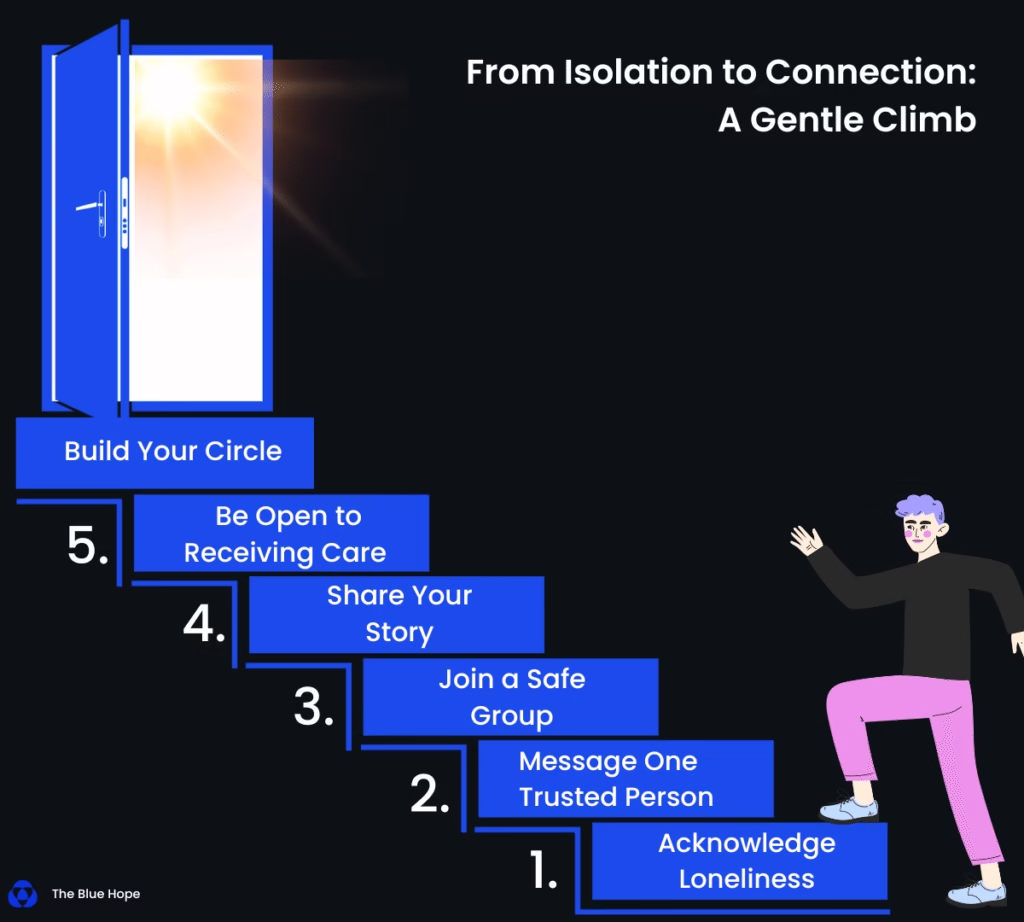
Conclusion: The Courage to Connect
Building a support network when you feel alone, especially as someone from a marginalized community, takes courage. It means risking rejection, navigating systems that weren’t designed for you, and believing in your worthiness of connection despite messages to the contrary.
But this courage is worth it. Research consistently shows that strong social connections improve mental and physical health, increase resilience, and provide the foundation for collective action toward a more just world.
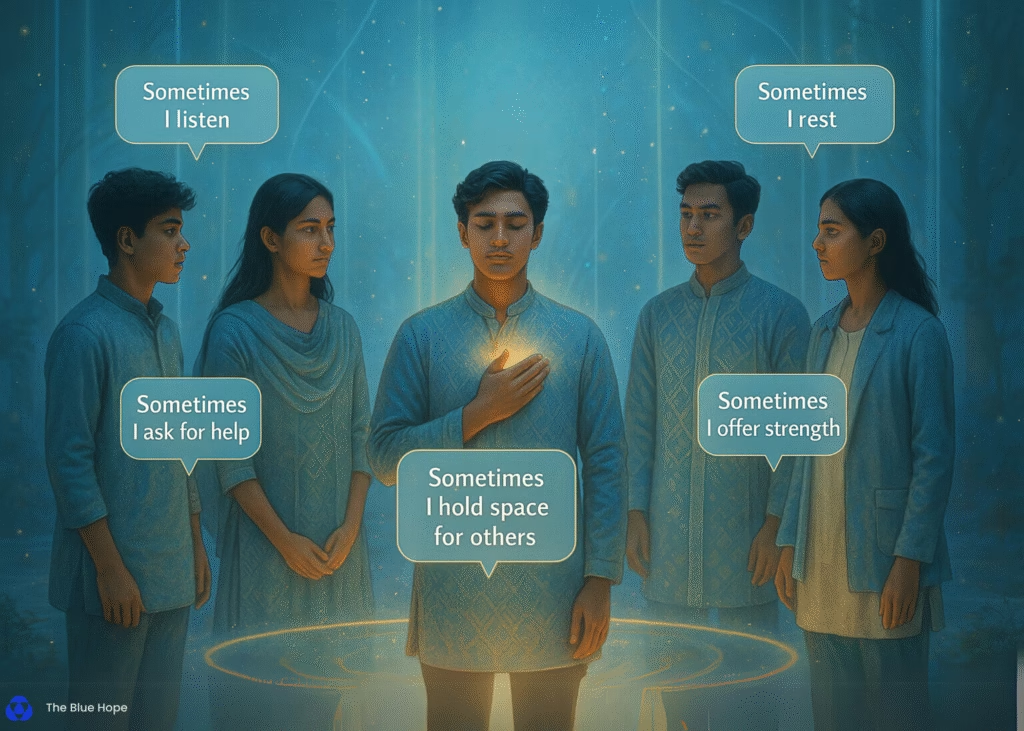
No one should have to navigate life’s challenges alone. Whether you’re taking your first small step toward connection or working to strengthen an existing network, remember that you’re participating in something profoundly human—the creation of community that sustains us all.
As you take your next steps, hold onto this simple truth, you truly deserve to be seen, heard, and supported. Somewhere out there, someone is hoping to find the kind of connection that only you can offer. Every time you reach out, you’re not just finding support for yourself, you’re helping make the world a little less lonely for someone else too.

